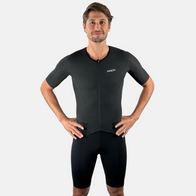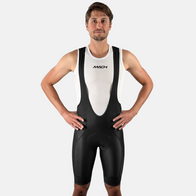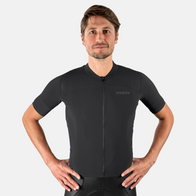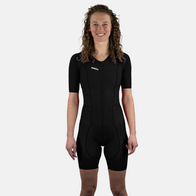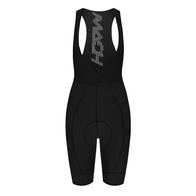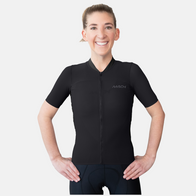
Get Faster with Peer Pressure
When the Boston Athletic Association lowers qualifying times, runners of all ages run faster. You’ve probably seen it in your own training: playing the guessing game of how much faster you need to be to get into the Boston Marathon, bemoaning the new finishing standards, and then somehow meeting them.
Runners World recently broke down the numbers, reporting on the progressively larger delta between official qualifying time and the actual cut-off time for admission to Boston. 2013 was the last year all qualifiers got to race. From 2014 to 2017 runners had to be 1-2 minutes faster than qualifying, with about 3,000 runners shut out per year. Then there’s a steep increase to 2019, with a 4:52 delta and 7,384 runners who met qualifying time and were shut out.
In 2020 Boston will decrease qualifying times by 5 minutes for all categories in an attempt to eliminate shutouts. We predict they’ll be unsuccessful, as the pool of Boston hopefuls will meet the challenge by going faster.
So what’s going on? As a population, we’re getting slower. According to the CDC only 23% of U.S. adults get the recommended amount of exercise per week (3.5 hours of moderate cardio and weight training) and a recent international survey found that recreational runners have never been slower. But as anyone who’s accidentally gotten into the “fast” lane at master’s swim knows, you turn up the intensity to match the athletes around you.
Psychologically speaking, social comparison theory can predict exercise outcomes. Psychology Today reported that subjects rode an exercise bike 25 BPM harder when they were grouped with fitter people, while reporting the same perceived exertion and enjoyment of their workout.
Studies show people lose weight when hanging out with fitter friends. Adding just one thin person to your social network results in small but statistically significant weight loss, and a lower risk of obesity. None of this means you should cut off your less athletic friends—life is richer for their social support and intellectual pursuits.
But, if you aren’t currently on a tri team, doing speedwork with friends at the track or attending masters swim, switch it up so you’re working out with fitter people. You’ll go faster, more or less automatically.
And if you’re already doing all those things? Consider applying to a more serious team or moving one lane closer to the middle at masters swim. Live in a teeny town or prefer to train alone? Find virtual friends.
Social media and online peer groups have a huge impact on overall fitness. A University of Pennsylvania study of social networks found that peer competition creates a “social ratchet effect” that helps people get fitter faster. However, the least active members of a group can also create a kind of inertia that pulls others to exercise less. The study’s authors recommend evaluating online fitness groups by whether they offer support or friendly competition. If it’s support, it may be time to find a group based around friendly competition, so your health buddies don’t lull you into complacency, sabotaging your fitness plans.
Bottom line: if you decide you’re a Boston-level runner – or an IRONMAN – you’ll do what it takes to keep up with that peer group. So no matter your sport, pick your cohorts wisely, whether it’s your tri club, training partners or who you follow on Strava.
Fast friends are fast finishers. You could be one too.





